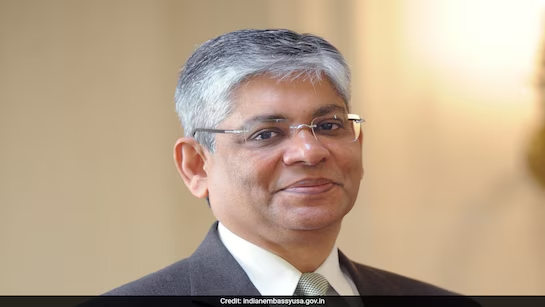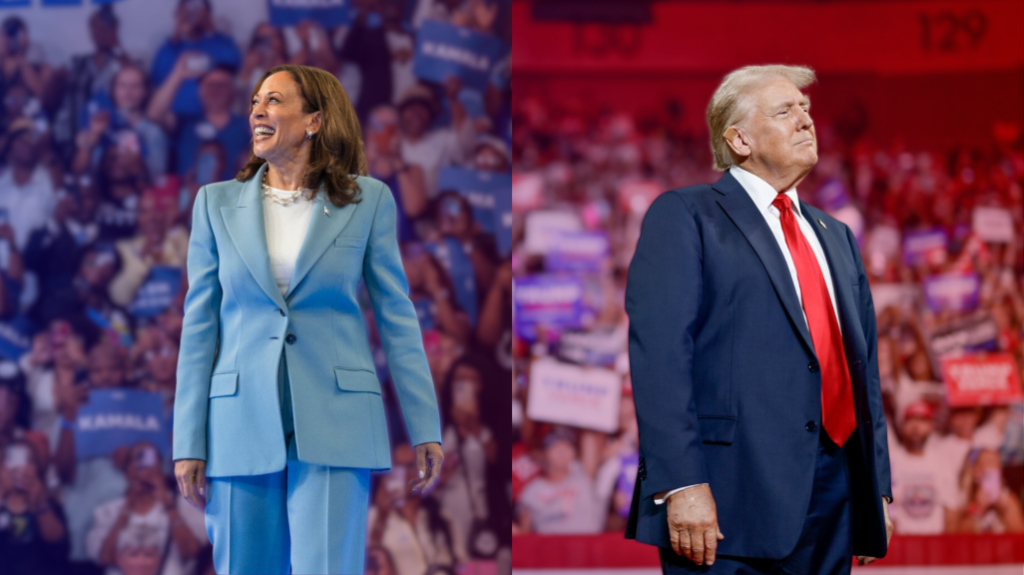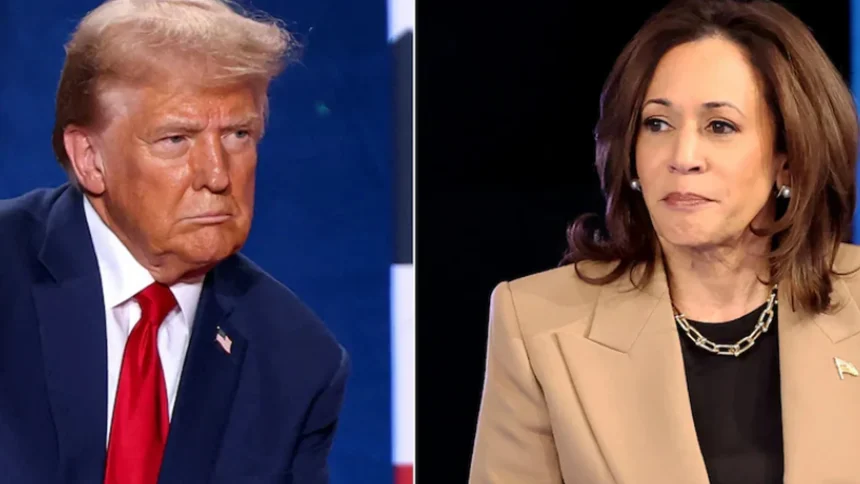Arun Kumar Singh on the 2024 U.S. Election: Analyzing Trends, Challenges, and Voter Sentiments
Arun Kumar Singh, former Indian Ambassador to the United States, recently provided insights into the 2024 U.S. presidential election, identifying key trends and voter sentiments that echo previous races.
Singh highlighted the unique nature of each election while pointing out striking similarities with the 2016 and 2020 campaigns. He noted how former President Donald Trump has once again defined the core themes of his campaign by portraying a narrative of American decline, much like he did in his previous bids.
In his interview with ANI, Singh observed that Trump’s approach in the 2024 campaign mirrors his strategies in past elections. He has presented a picture of America as a country in distress, claiming that it has been weakened by external forces, mismanaged by the establishment, and exploited by immigration policies.
“In some ways, this election campaign resembles those of 2016 and 2020,” Singh remarked. “Trump is shaping the conversation, emphasizing issues of economic decline, immigration, and American prestige on the global stage, positioning himself as the outsider, despite his success as a businessman.”
Singh also commented on Vice President Kamala Harris’s candidacy, which has historic significance as she seeks to become the first African American and Indian American woman to assume the presidency. Despite her groundbreaking candidacy, pre-election surveys have revealed surprising trends within voter demographics traditionally expected to support her.

READ ALSO: IMF Cautions on Rising Risks to Asia’s Economy Amid Trade Tensions and Slowing Growth in China
According to Singh, many of these pre-poll surveys showed that key demographic groups were not aligning with Harris as strongly as anticipated. “The majority of African American and Latino males did not indicate support for her in pre-poll surveys,” he explained.
“Even among Indian American voters—of whom 80% backed Hillary Clinton in 2016 and 70% supported Joe Biden in 2020—only an estimated 60% were expected to back Harris.” Singh suggested that while Harris’s heritage might have been a potential factor for increased support, her candidacy did not translate into the expected level of enthusiasm from these communities.
Singh linked these polling trends to broader issues concerning the American public, particularly economic factors that have grown in prominence in this election. As inflation, job concerns, and general economic uncertainty continue to affect daily life, many voters feel the Biden-Harris administration has not fully addressed these challenges.
Singh noted that these economic anxieties have led to a general sense of dissatisfaction with the current administration. “Many Americans, according to surveys, feel the country is on the wrong path,” he said, “and this sentiment is likely influencing their voting decisions, which in turn could negatively impact Harris’s prospects.”
As the race draws to a close, the focus is shifting to the numerous battleground states that could tip the scales. States like Pennsylvania, North Carolina, and Georgia remain highly contested, and the outcome in these areas could be decisive in determining the election’s outcome.
Voters across the United States are gearing up for what many consider one of the most consequential elections in recent history. Polling hours vary by state, but most voting locations will remain open from 6 a.m. to 8 p.m. local time on Tuesday. Exit polls are expected to give early indications of trends, although the final results will not be confirmed until vote counting concludes in all states.
The first polls will close around 7 p.m. ET in states like Georgia, while the last polls will close in Hawaii and Alaska at midnight ET. Counting is expected to proceed throughout the night, with results in some smaller states projected relatively quickly, though projections in pivotal battlegrounds could take hours.

The 2024 U.S. presidential election is poised to shape the future of not only the United States but also global geopolitics over the next four years. Singh’s analysis reflects the deep complexities at play, from shifting voter demographics to the economic concerns weighing on American households.
As voters head to the polls, the stakes could hardly be higher. Whether the result is a second Trump administration or a historic Harris presidency, the election’s outcome will have lasting implications for both domestic policies and international relations.
In his closing thoughts, Singh emphasized the importance of understanding voter sentiment and the power of narrative in defining an election’s key issues. In this final stretch, both candidates are vying not only for victory but for a mandate that will steer the country forward. With global attention fixed on the U.S., the 2024 election will undeniably be a landmark moment, reflecting the nation’s priorities and challenges on a global stage.

